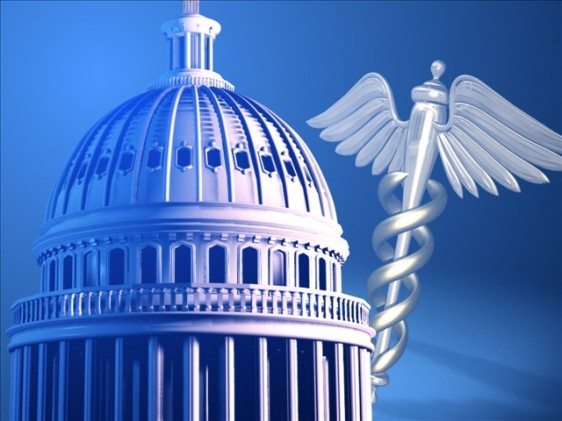
On September 26, 2018, the U.S. House of Representatives overwhelmingly voted to approve the 2019 Fiscal Year spending bills (H.R. 6157) for the Departments of Labor, Health and Human Services (HHS), and Education. The spending package provides $178 billion overall. The bill was signed into law by President Trump before the deadline of October 1.
The bill includes a $2 billion increase in spending for the National Institutes of Health (NIH). It also increased the budget slightly for the Centers for Disease Control and Prevention as well as the Agency for Healthcare Research and Quality. The Health Resources and Services Administration also received a minor boost for their administration of existing and new health workforce programs.
Changes to the Earlier House Appropriations Committee Bill
The fiscal year 2019 bill that the House Appropriations Committee approved earlier in the year did not include prohibitions of research involving fetal tissue resulting from induced abortions. Also earlier in the year, the U.S. Senate passed a health spending bill that included funding for medical research as well as for fighting the current opioid epidemic. The final bill that passed was a series of compromises.
2019 Department of Health and Human Services Appropriations Act
The Health Resources and Services Administration received appropriations for the following agencies and programs under their control:
- The Ryan White HIV/AIDS Program
- Rural Health
- Primary Health Care
- Maternal and Child Health
- Health Workforce
- Health Care Systems
- Family Planning
- The Vaccine Injury Compensation Program Trust Fund
- Program Management
The Centers for Disease Control and Prevention received appropriations for the following agencies and programs under their control:
- Chronic Disease Prevention and Health Promotion
- Immunization and Respiratory Diseases
- Emerging and Zoonotic Infectious Diseases
- HIV/AIDS, Viral Hepatitis, Sexually Transmitted Diseases, and Tuberculosis Prevention
- Global Health
- Birth Defects, Developmental Disabilities, Disabilities and Health
- Environmental Health
- CDC-Wide Activities and Program Support
- Public Health Preparedness and Response
- Public Health Scientific Services
- The Energy Employees Occupational Illness Compensation Program
- The National Institute for Occupational Safety and Health
- Injury Prevention and Control
- Buildings and Facilities
The National Institutes of Health received appropriations for the following agencies and programs under their control:
- National Heart, Lung, and Blood Institute
- National Cancer Institute
- National Institute of Diabetes and Digestive and Kidney Diseases
- National Institute of Dental and Craniofacial Research
- National Institute of Nursing Research
- National Center for Complementary and Integrative Health
- National Human Genome Research Institute
- National Institute on Aging
- National Institute of Environmental Health Sciences
- National Eye Institute
- National Institute of Neurological Disorders and Stroke
- National Institute of General Medical Sciences
- National Institute of Allergy and Infectious Diseases
- National Institute of Arthritis and Musculoskeletal and Skin Diseases
- National Institute on Minority Health and Health Disparities
- National Institute on Deafness and Other Communication Disorders
- Eunice Kennedy Shriver National Institute of Child Health and Human Development
- National Institute on Alcohol Abuse and Alcoholism
- National Institute of Mental Health
- National Institute on Drug Abuse
- National Institute of Biomedical Imaging and Bioengineering
- National Library of Medicine
The Substance Abuse and Mental Health Services Administration received appropriations for the following agencies and programs under their control:
- Health Surveillance and Program Support
- Substance Abuse Treatment
- Mental Health
- Substance Abuse Prevention
